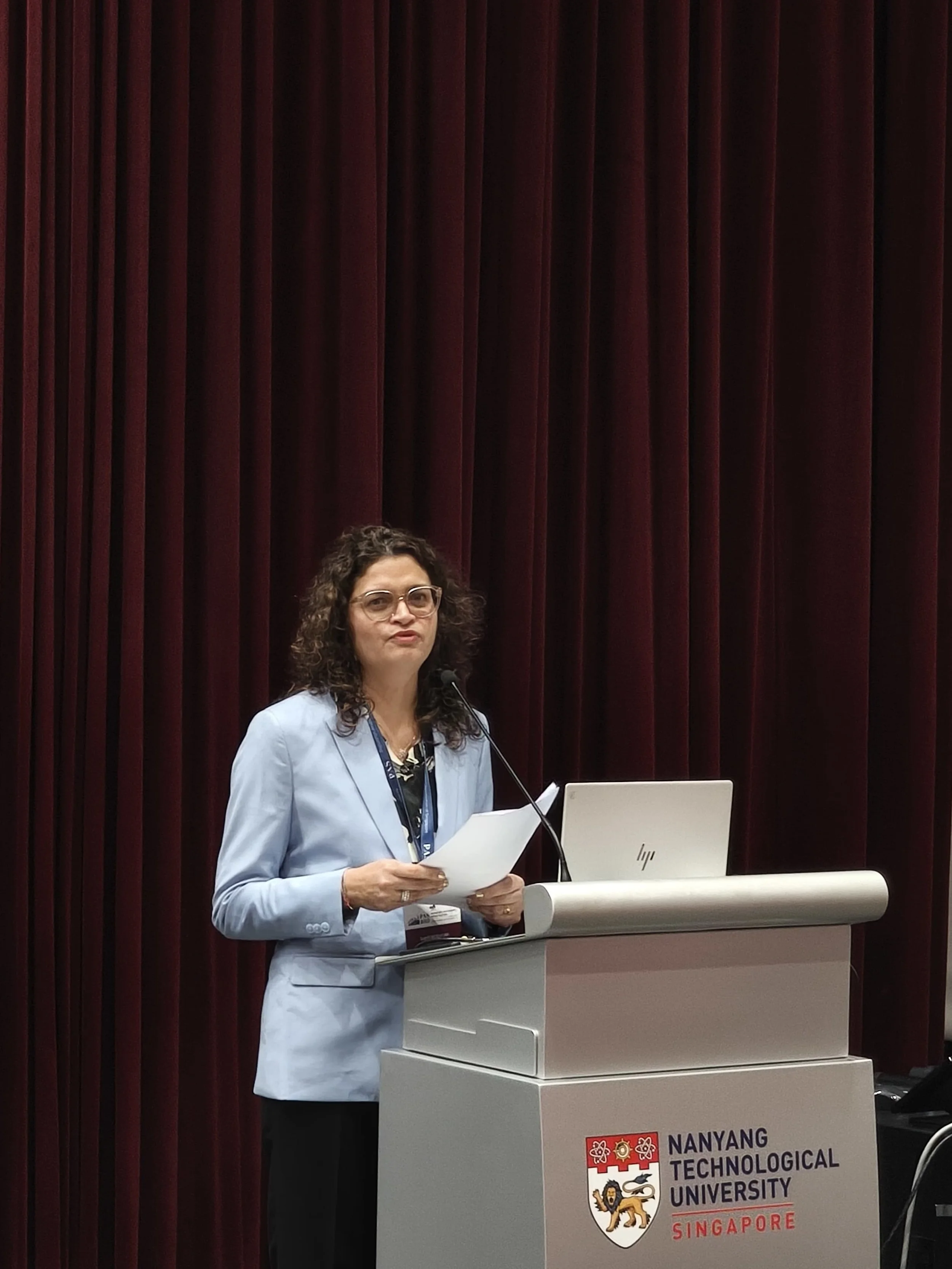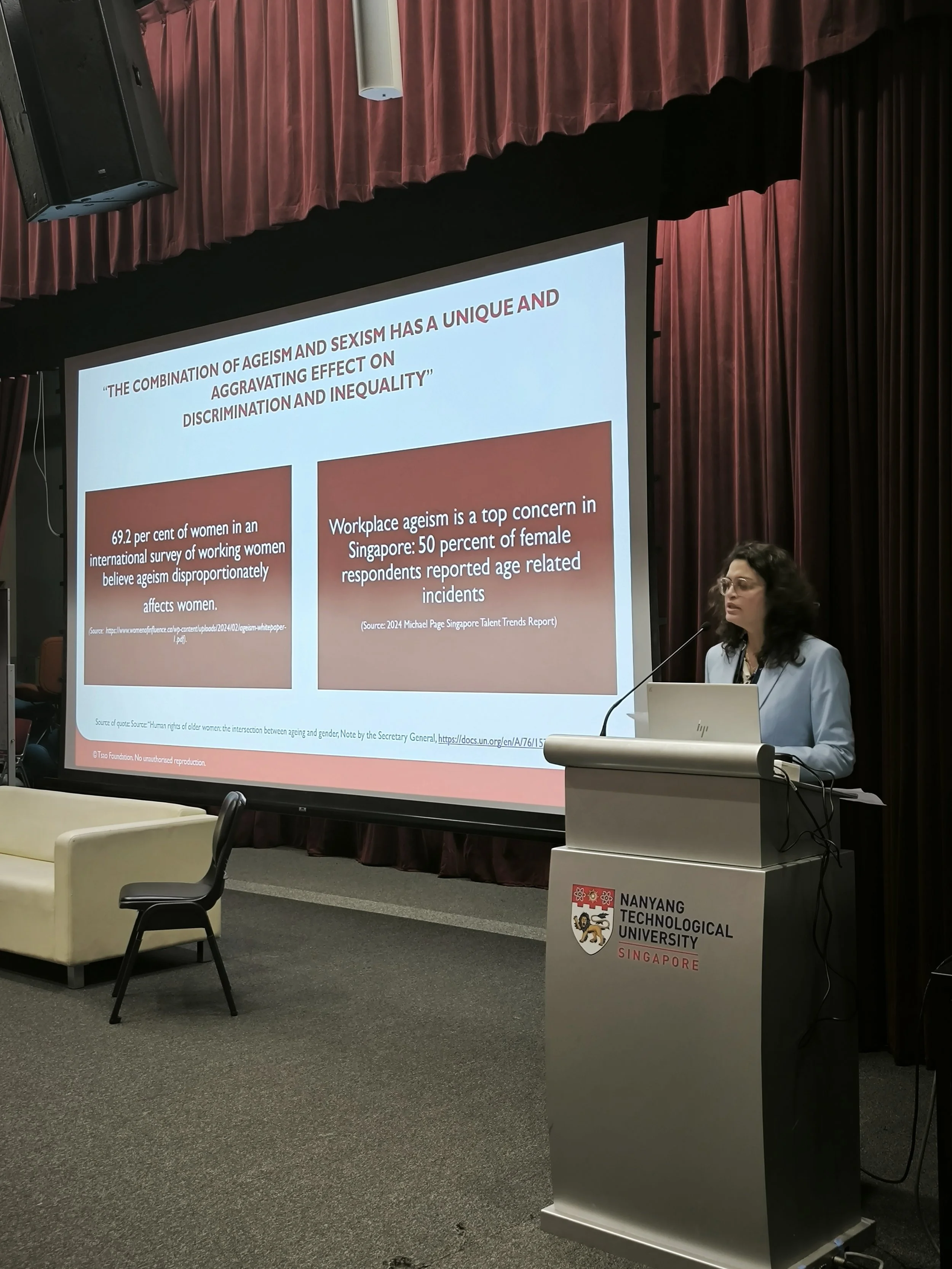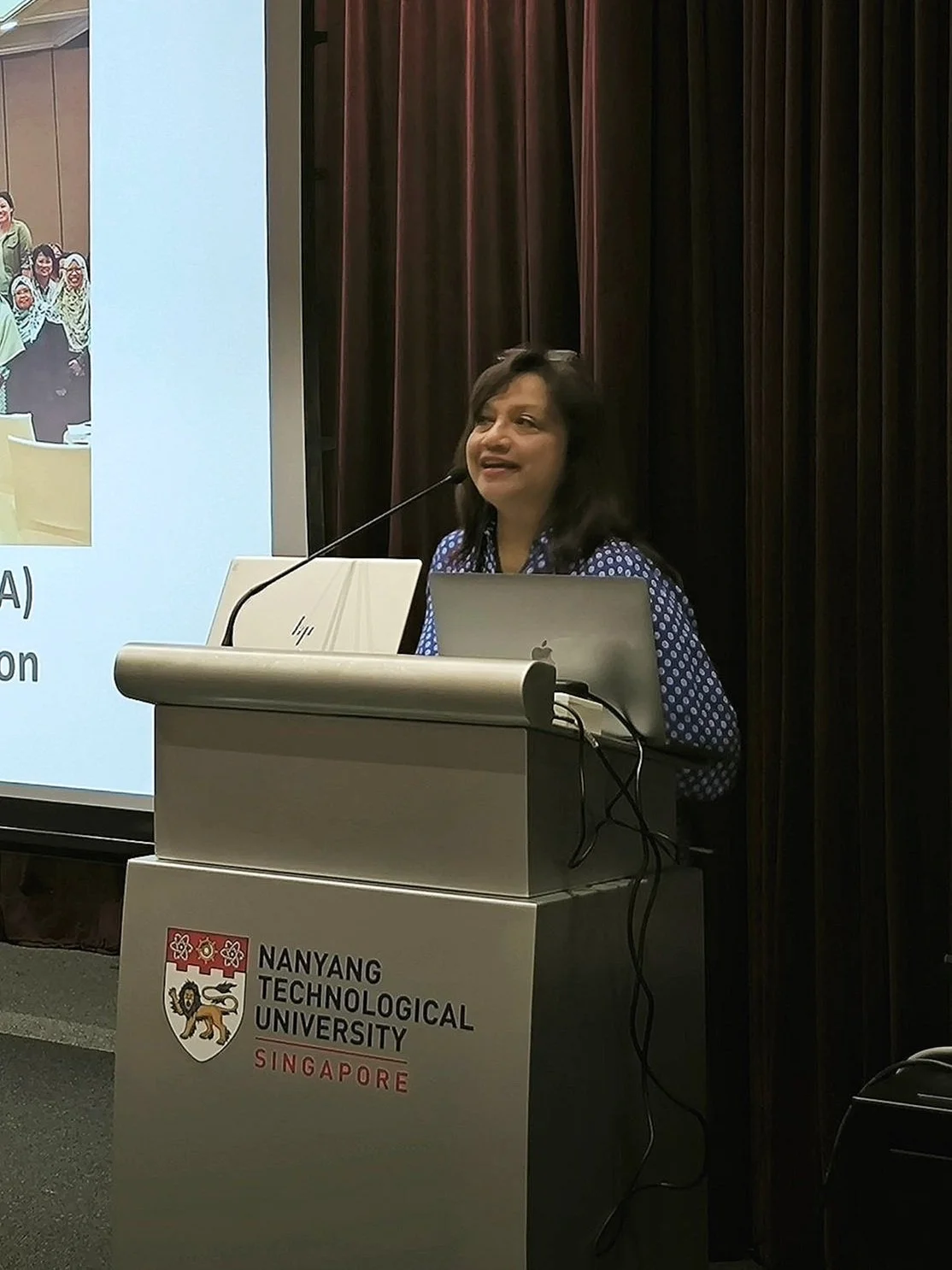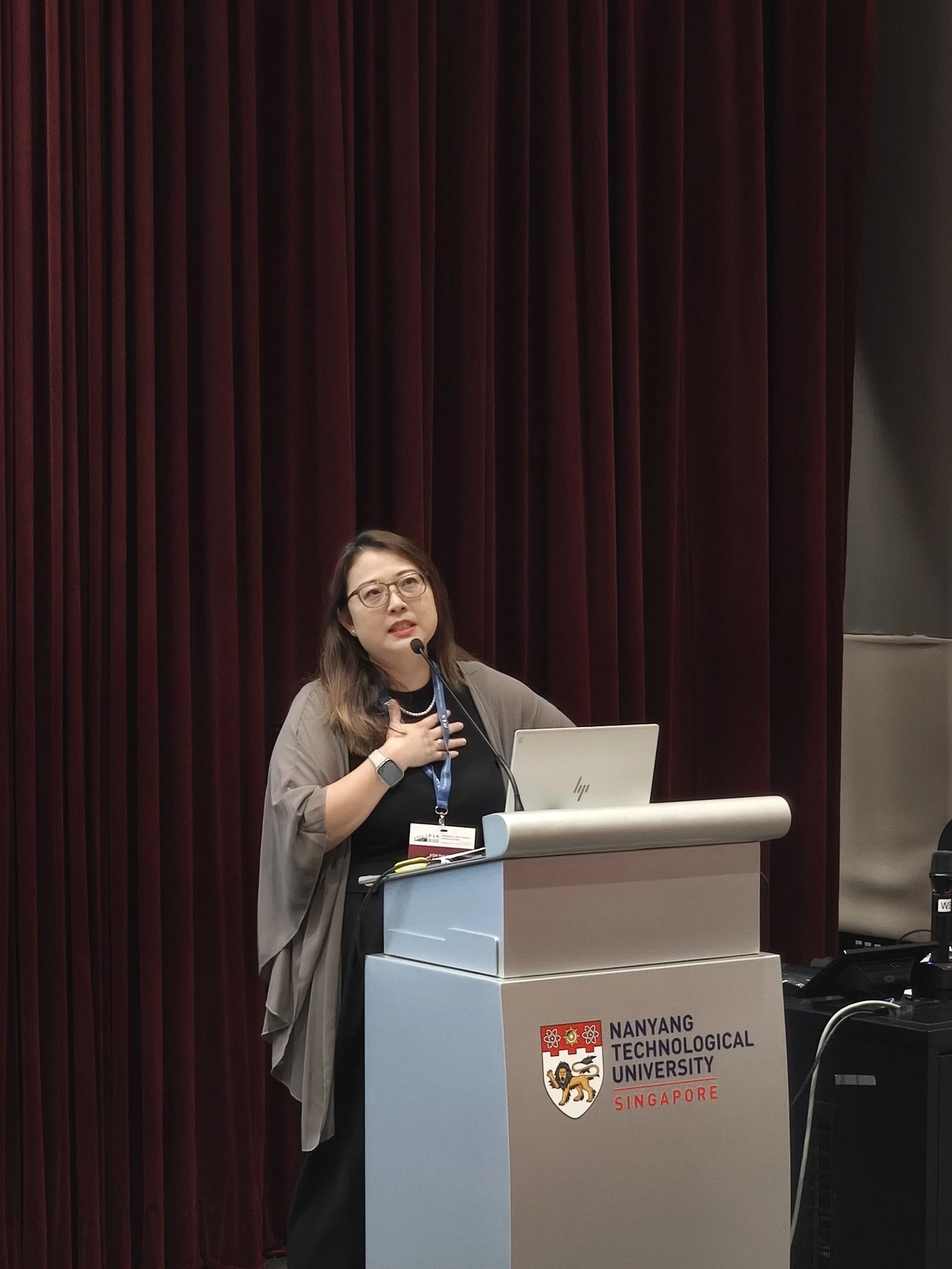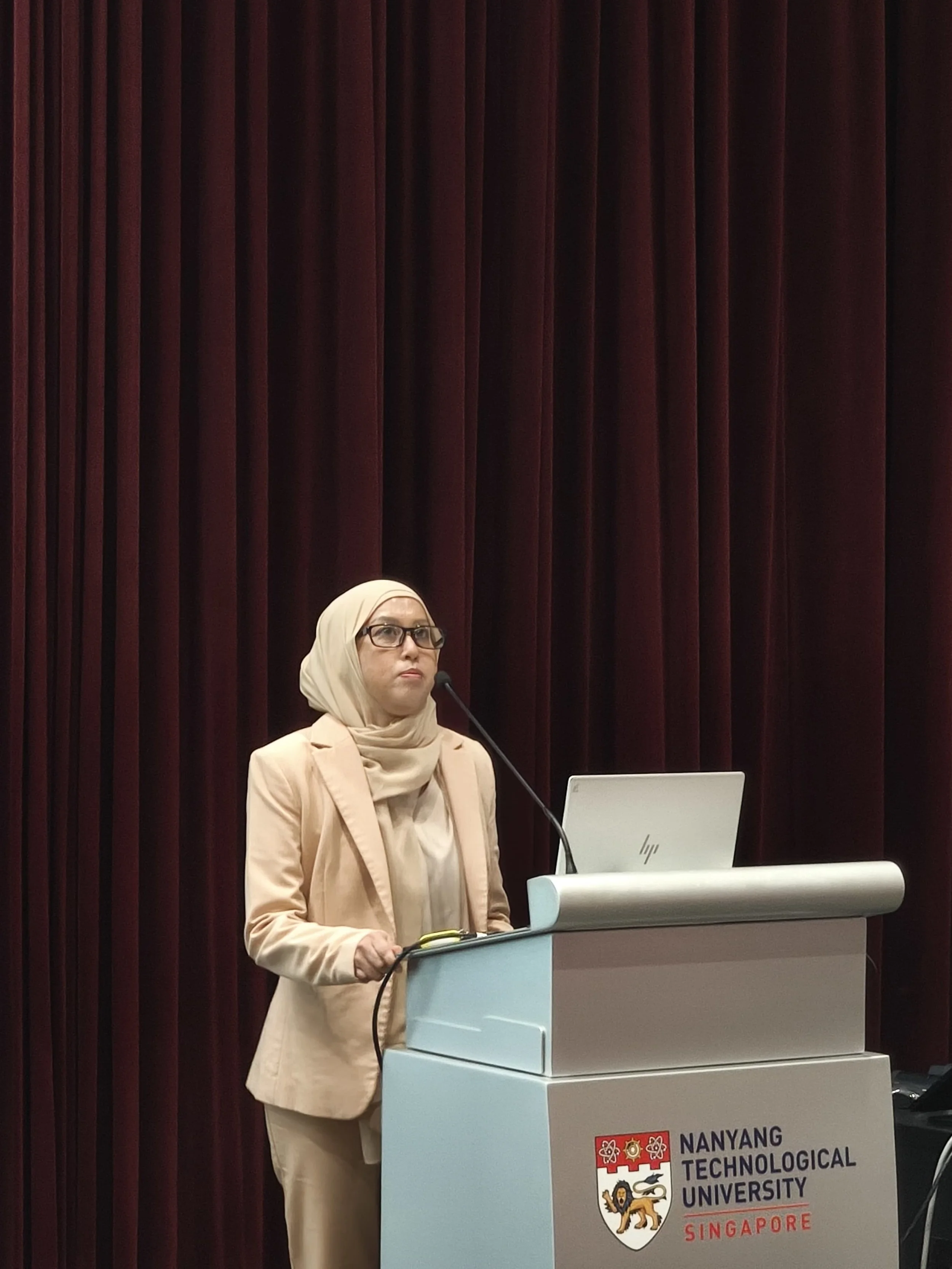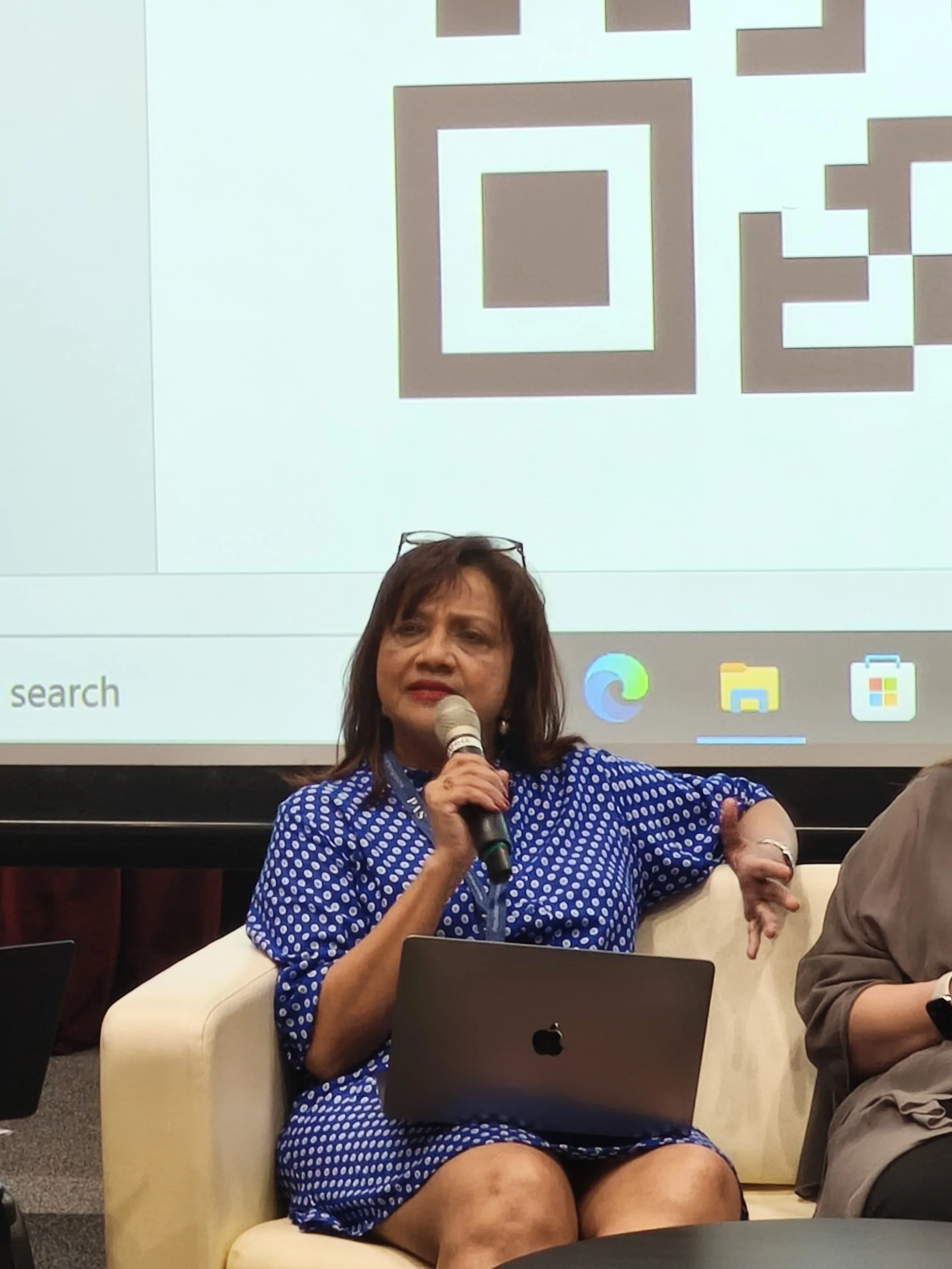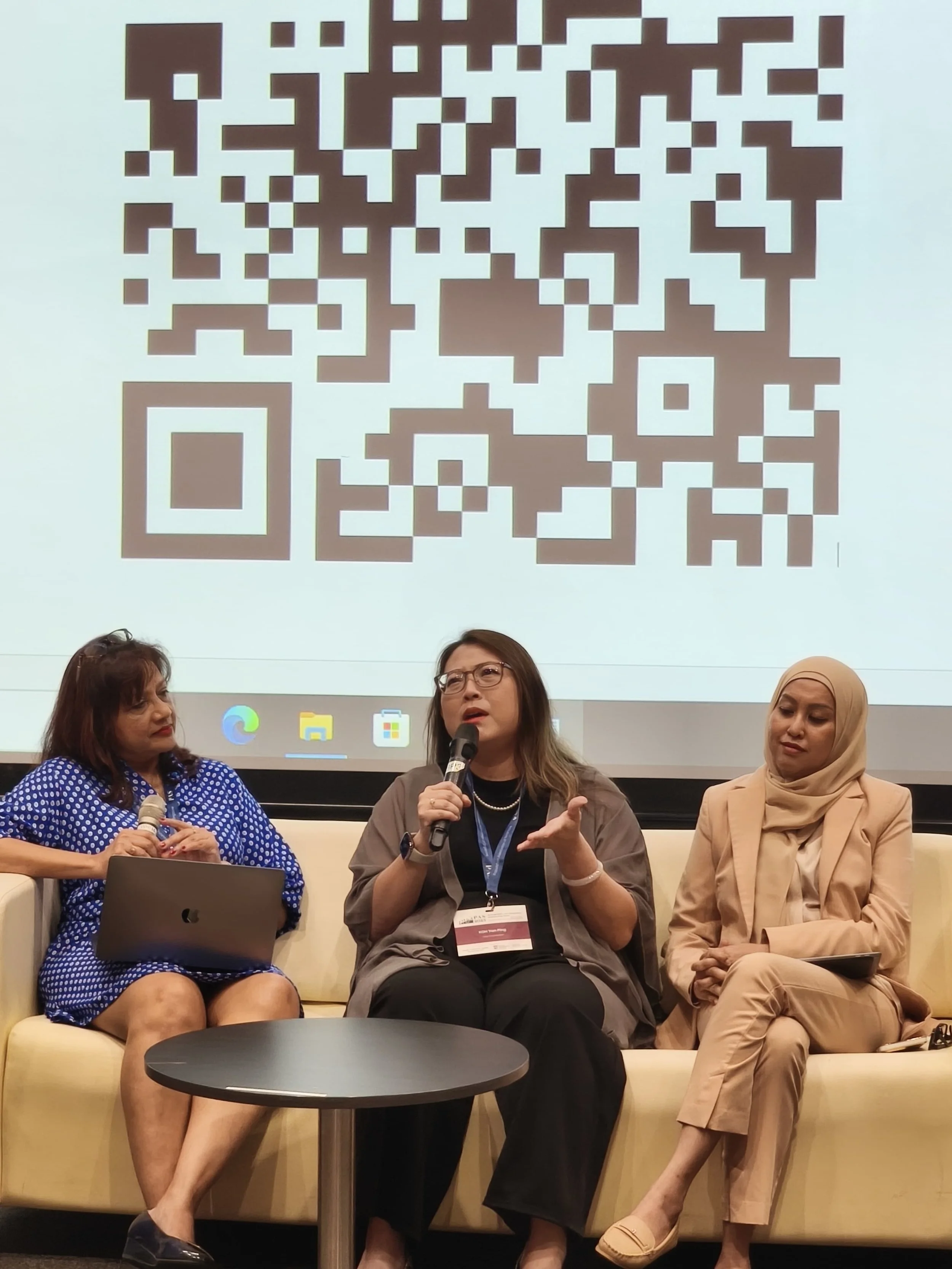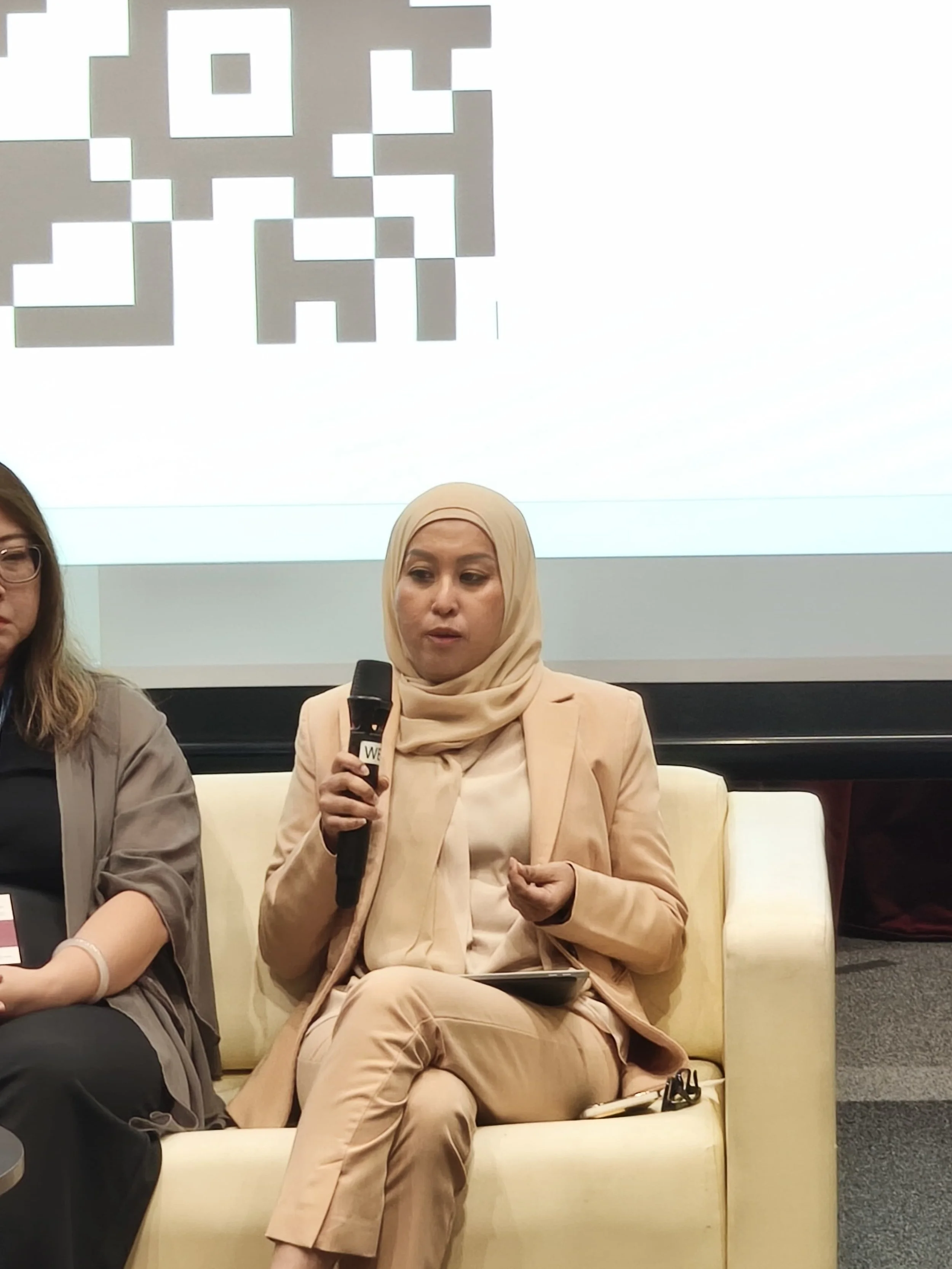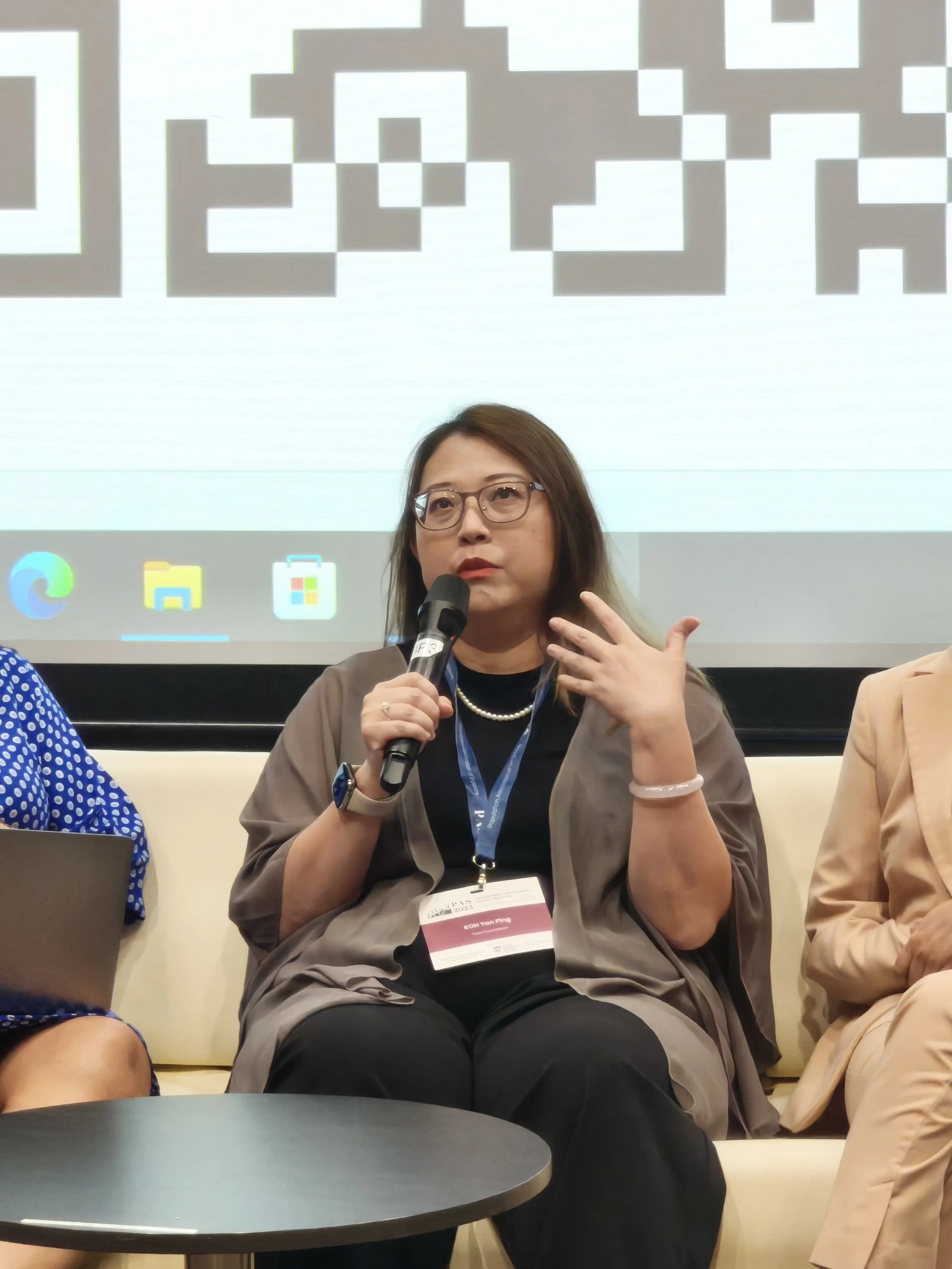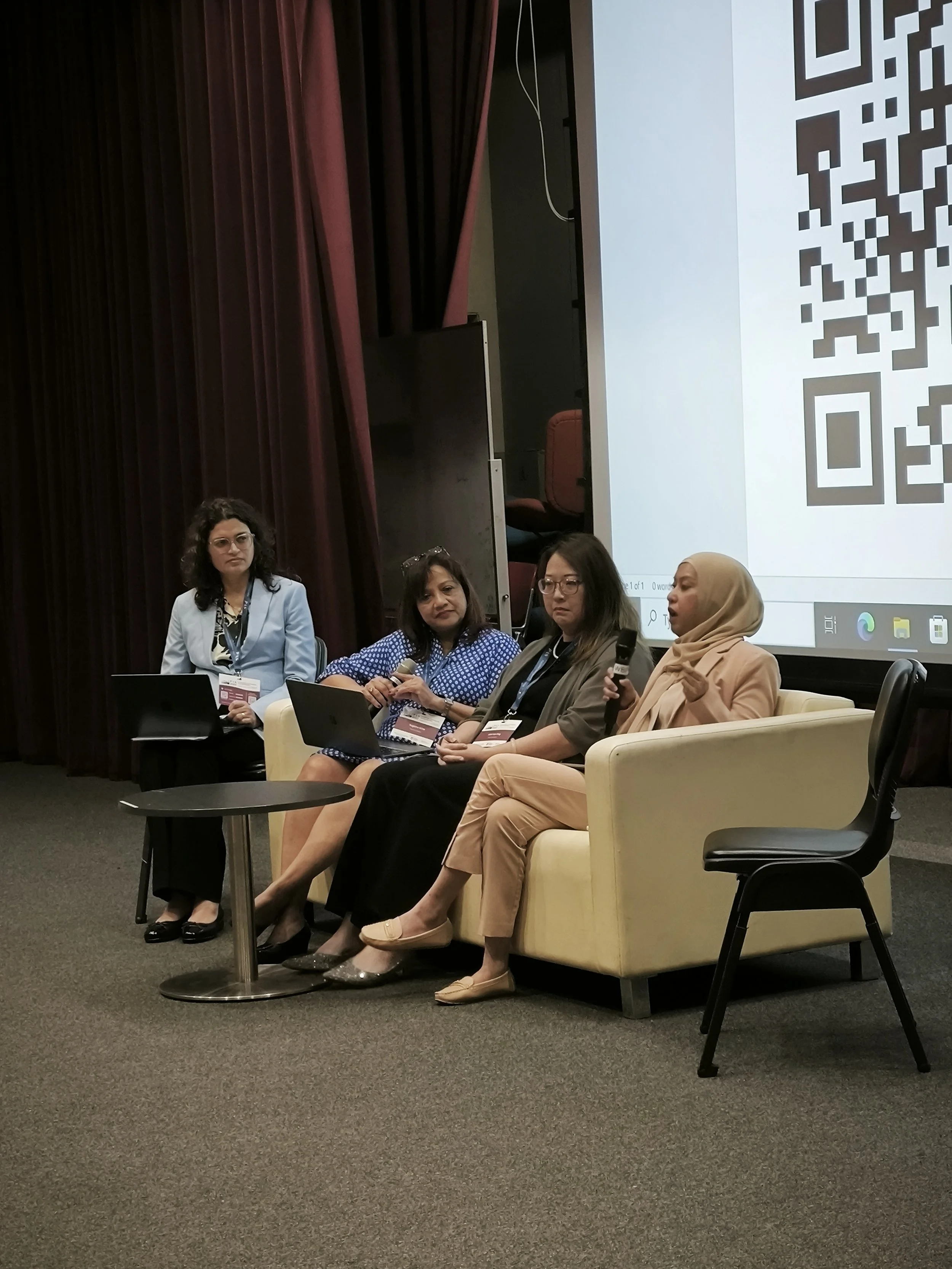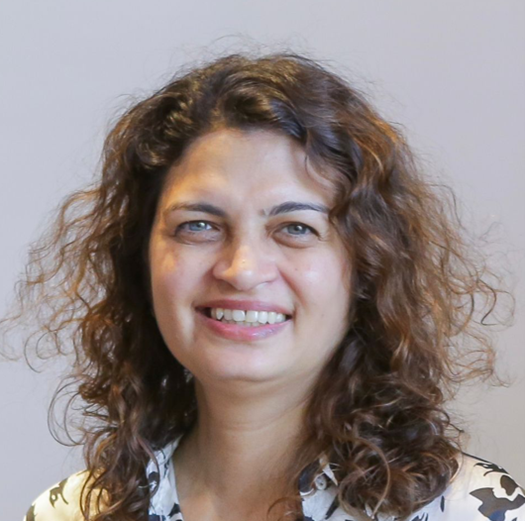
Tsao Foundation Panel - Highlights
The Intersections between Gender, Ageing and Inequality
16 May 2025
The Population Association of Singapore (PAS) held its third annual meeting on 15 – 16 May 2025 on the theme ‘Demography and Inequality: Intersecting Paths.’ As part of this conference, the Tsao Foundation, together with its partners from the Singapore Alliance for Women in Ageing (SAWA) hosted a panel on the theme ‘The Intersections between Gender, Ageing and Inequality’ on 16 May 2025.
The panel aimed to draw attention to how the intersection of gender and age throughout the life course results in gendered inequalities faced by women in old age; and the need for policies that recognise and address the intersection of gender, ageing and inequality.
Focusing on the intersection of gender and age at work, Dr Supriti Bezbaruah (on behalf of Ms Susana Harding, Senior Director, International Longevity Centre Singapore, Tsao Foundation) presented on ‘Ageing and Gender Intersectionality Evidence From a Cross-sectional Study of Mature and Older Singaporean Workers.’ Dr Bezbaruah used data from a survey of mature and older workers conducted by the Tsao Foundation in 2023-2024 that showed that female workers are significantly more likely to report age discrimination at work compared to males. Lower-income, older women (above 50 years) in particular, were most vulnerable to discrimination, underlining how intersections of age, gender and income can compound inequalities. However, no significant gender differences were found in selection and hiring practices. Gender was also not a significant factor influencing improvements in employment outcomes after training. Instead, other factors, such as perceptions of employability and informal learning had a greater impact on employment outcomes. The findings point to a two-fold approach to policy interventions. First, it is essential to address gender and age discrimination at work, through a combination of legislation, changes in workplace practices and cultures, and a focus on changing employer mindsets, among others. Second, training programmes must be paired with policies to address workplace discrimination. Furthermore, as training does not in itself guarantee better employment outcomes, there should be greater emphasis on encouraging informal learning and developing programmes that boost perceptions of ageing and employability. Interventions should focus on improving employment outcomes, not just completing training, which may require providing more tailored training programmes that address the specific needs of older women.
This was followed by a presentation by Ms Sugidha Nithiananthan, Director, Advocacy and Research, Association of Women for Action and Research (AWARE) on ‘The Lived Experience of Ageing Among Women: A Study on the Impact on Career, Financial Health and Mental Well-Being.’ The presentation outlined some of the main areas of concern of older women in Singapore, in response to the White Paper on Singapore Women’s Development. Ms Nithiananthan explained how the White Paper on Singapore Women’s Development, released in 2022 focused on younger women, and did not include targeted policies or initiatives for older women. In response, to understand older women’s concerns, SAWA held a series of focus group discussions with older women focusing on five core themes: workplace, caregiving, retirement adequacy, health and well-being, and community support and outreach. Based on the insights from the focus group discussions, SAWA presented a series of recommendations in each core area as outlined below.
While the first two presentations focused on the concerns of current cohorts of older women, Ms Koh Yan Ping, CEO, Singapore Council of Women’s Organisations (SCWO) turned the attention to the future, or ‘Tomorrow’s New Old: Singapore’s Future Cohort of Ageing.’ Ms Koh shared the findings of a study conducted by the SCWO on this group of individuals, in their 50s and turning 60-70 in 2030, who are part of the growing sandwich generation of Singaporeans who are simultaneously caring for parents and children. Considering their differing responsibilities and profiles (for instance, they are better educated than previous cohorts), their concerns and needs for old age are also different. The findings showed that Tomorrow’s New Old (TNOs) wished to retire and live independently but wished for more mental and emotional support in later age. They preferred flexible work arrangements and prioritised retirement preparedness and financial independence. Like the previous cohorts of older persons, they were also concerned about ageism at the workplace and wished to have more support and concerted action taken by employers. In terms of living arrangements and caregiving, the study found that TNOs were more open to community care facilities. Consequently, Ms Koh pointed out that policy interventions for the future cohorts of older persons would need to be different, with a greater emphasis on community support (such as community care facilities), support structures for mental and emotional wellbeing, and evolving workplace policies that offer older employees more flexible work arrangements and support for retirement preparedness.
The final presentation by Ms Sabariah Aris, Assistant Director of the PPIS Research & Engagement Department (RED), introduced another dimension to intersectionality through her session titled “Who Gets Left Behind? Understanding Inequality Through the Lens of Gender, Faith, and Ageing.” Ms Aris underscored the knowledge gap on the aspirations of Singapore Muslim women, which limits the development of targeted support initiatives for this group. Drawing on findings from PPIS' Aspirations of Singapore Muslim Women Research, her presentation examined how the intersecting structures of gender, faith, and age produce cumulative disadvantage among Muslim women in Singapore. From early gendered expectations and caregiving responsibilities to cultural misrecognition and labour market exclusion, these factors intensify over time—culminating in economic insecurity, social isolation, and marginalisation in later life. The study challenges monolithic portrayals of Muslim women by highlighting their faith-aligned aspirations, professional aspirations, and desire for agency and recognition. The study also called for a life course and intersectional approach to social policy, as well as the need to design inclusive systems that reflect the diverse lived realities of those most at risk of being left behind.
The presentations were followed by a panel discussion and open Q&A. The panellists discussed the challenges faced by the ageing population, especially women, in the workplace, the impact of the Workplace Fairness Act and the Tripartite Guidelines on Flexible Work Arrangements (FWAs), and the impact of caregiving responsibilities, particularly for women, on their careers and income and retirement security. The panellists explored the stereotypes and biases that presented challenges for women in the workplace, the need for employers to understand and effectively administer requests for FWAs, the importance of employers embracing and modelling best practices in relation to encouraging both men and women to undertake caregiving responsibilities, including utilising their full paternity leave, what would best motivate employers to take action on ageism and sexism in the workplace, and the role of men in addressing gender inequalities, among other issues. The panel concluded with the observation that these challenges are myriad and complex, and employers need to understand the value brought to their businesses when they address issues of age and sex discrimination in the workplace, and finally, that research and data is needed that verifies this.
Tsao Foundation Panel Speakers
Ageing and Gender Intersectionality Evidence from A Cross-Sectional Study of Mature and Older Singaporean Workers
Director of Bezbaruah Consulting Pte Ltd
Supriti Bezbaruah
Research Consultant, Tsao Foundation
Dr Supriti Bezbaruah has an extensive background in gender and development issues. She is the Director of Bezbaruah Consulting Pte Ltd, and is working as a research consultant with the Tsao Foundation. Her areas of interest include gender and ageing, and gender inequality in the workplace.
She co-edited the multi-country study published by the Tsao Foundation, Singapore on “The Financial Security of Older Women: Perspectives from Southeast Asia.”
Dr Bezbaruah holds a PhD from Queen Mary, University of London, a BA (Hons) degree from Oxford University, and an MSc from the London School of Economics and Political Science (LSE).
Susanna Harding
Senior Director at the International Longevity Centre Singapore
Susana is Senior Director at the International Longevity Centre Singapore, an Initiative of Tsao Foundation. She is also Adjunct Senior Research Fellow at College of Nursing & Health Sciences at Flinders University, Australia.
Her policy and research interests are ageing and gender and its intersectionality, caregiving, financial security, community resilience, active and successful ageing, long term care, empowerment, and community development.
Susana graduated Cum Laude from the University of Santo Tomas (Manila, Philippines) with a Bachelor of Arts degree in Economics and holds master’s degree in public administration (MPA) from the Lee Kuan Yew School of Public Policy at National University of Singapore.
She is also the Honorary Treasurer of the Board of Directors at Centre for Seniors as well as a Council Member of the Gerontological Society of Singapore.
She was awarded the Ageing Asia Global Trailblazer Award at the 13th Eldercare Innovation Awards 2025.
The Lived Experience of Ageing Among Women: A Study on the Impact on Career, Financial Health and Mental Well-Being
Sugidha Nithiananthan
Director, Advocacy and Research, AWARE
Sugidha is a lawyer by training, having graduated from the National University of Singapore. She has more than 15 years of legal practice experience as a litigator and corporate lawyer and has conducted trials in the High Court and appeals at the Court of Appeal. She also has about 10 years’ experience as an in-house lawyer, having been the General Counsel for an MNC on an infrastructure project in Africa.
Sugidha used to volunteer with AWARE before joining it as its Director, Advocacy and Research. She oversees the research that AWARE conducts and leads its advocacy efforts to effect change.
Tomorrow's New Old: Singapore's Future Cohort of Ageing
CEO, Singapore Council of Women’s Organisations (SCWO)
Koh Yan Ping
Ms Koh Yan Ping was appointed Chief Executive Officer of the Singapore Council of Women’s Organisations (SCWO) in January 2023. Under her leadership, SCWO has strengthened its role as the national coordinating body for women’s organisations in Singapore, championing gender equality through impactful advocacy, strategic collaborations, and enhanced support services.
Since joining SCWO, Ms Koh has played a pivotal role in expanding the reach and impact of key initiatives, including the Maintenance Support Central, the continued development of the Star Shelter, and the launch of the SCWO SAGE: Summit for Action on Gender Equality. She has also deepened engagement with SCWO’s diverse member organisations, fostering stronger collective advocacy on women’s issues.
Who Gets Left Behind? Understanding Inequality Through the Lens of Gender, Faith and Ageing
Assistant Director, Research and Engagement Department (RED), PPIS
Sabariah Aris
Ms Sabariah Aris heads the Research and Engagement Department (RED), the advocacy arm of PPIS – an organisation dedicated to inspiring women and strengthening families. As a member of PPIS’ Senior Management Team, she also oversees RED Space, a new initiative that provides holistic support for women’s professional development, legal empowerment, and wellness needs. With over 20 years of experience in both the public and private sectors, Sabariah brings a wealth of expertise in communications, public affairs, event management, and project coordination. Her work is driven by a deep commitment to amplifying women’s voices and promoting gender equity through research, advocacy, and community collaboration.


